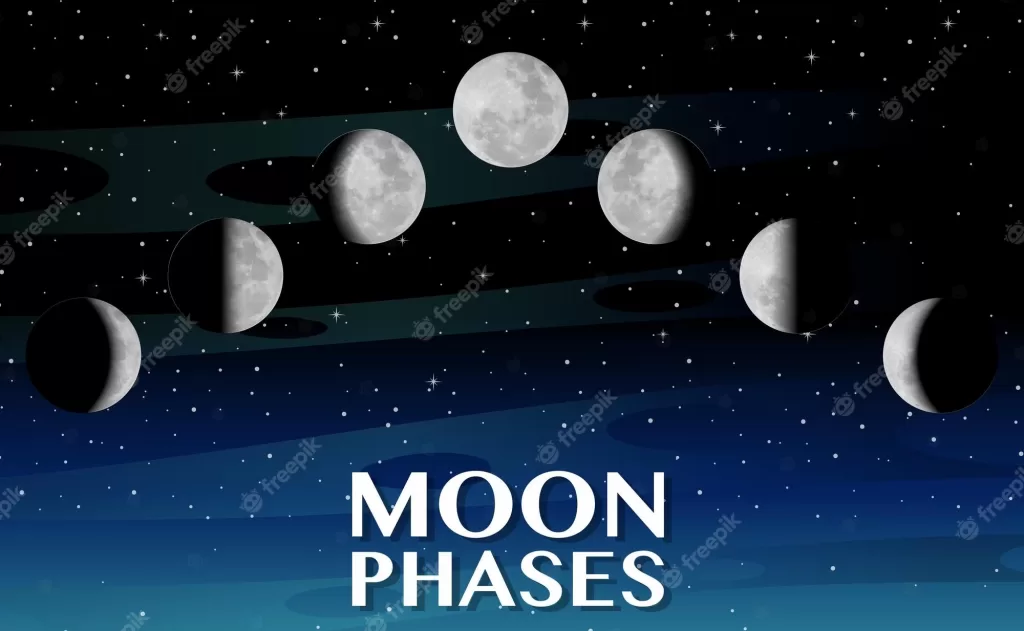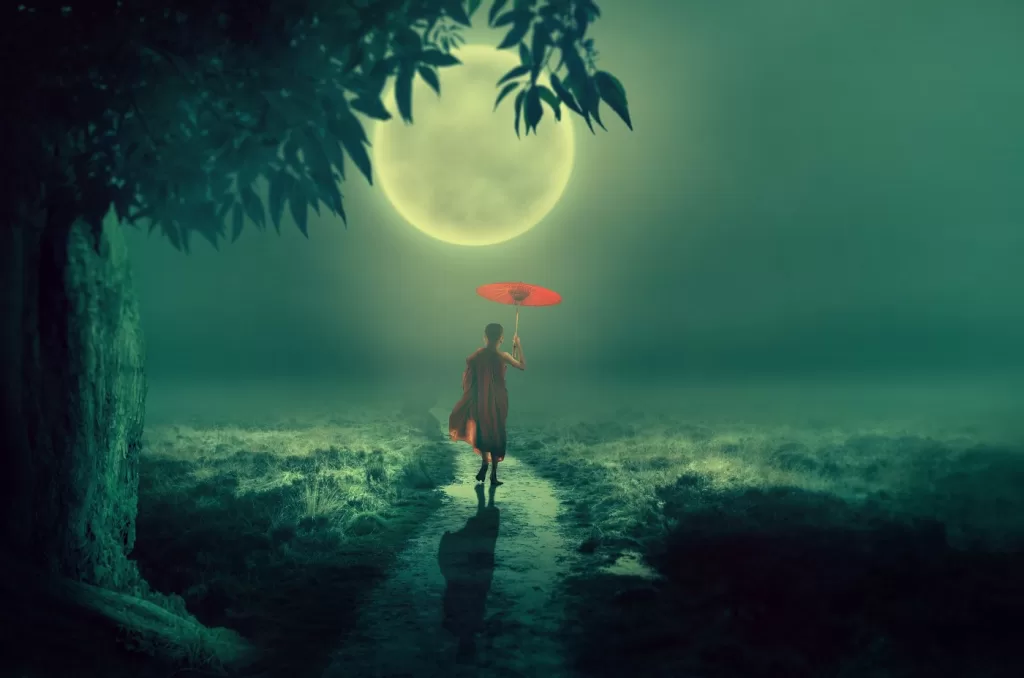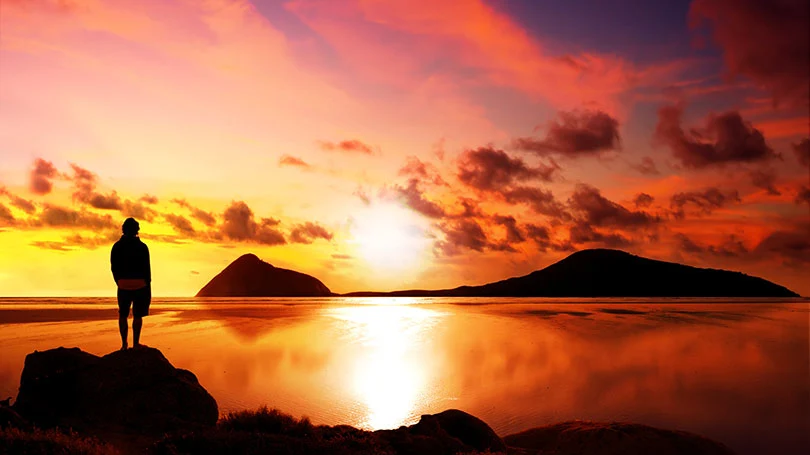The moon has enchanted humans since the beginning of time. People all across the world have revered it as a god for centuries because they think it has the ability to affect their daily lives and well-being. For hundreds of years, mythology and folklore from all over the world have been about the moon and how it affects people. The word “lunacy” itself has its roots in the 15th century, when it was thought that, depending on the phase of the moon, people would either be more or less aggressive.
The Moon’s privileged position amid the stars inspires awe and adoration in various cultures. Of course, there are other, darker, lesser-known stories about werewolves that only come out when the moon is full.
Is there any scientific reality behind the moon’s enchantment, once superstitions and long-standing tales are put to rest? Does the moon have any effect on human health? In this highlighted article, we analyze the proof.
For a longer period of time than anyone else, the moon has been keeping a careful eye on Earth. It must have seen everything that’s ever happened on Earth, everything that’s ever been done, everything.
The moon has long captivated the human mind as Earth’s natural satellite. Humans have looked to the moon for guidance on their lives and their health for millennia.

Humanity’s enduring moon obsession continues
NASA is getting ready to send another crew of people to the moon in 2024. This will be the 50th anniversary of Apollo 11’s landing on the moon. The moon has an effect on life on Earth that has been known for a long time and seems natural. During a full moon, corals go into a reproductive frenzy, releasing eggs and gametes.
The moon and Earth both have a pull on each other, which causes the ocean to rise and fall at regular times. Some people think that because the moon affects Earth’s biomechanical systems, it also affects people’s minds and bodies.
Is this true, and if so, to what extent? Our goal in this Spotlight article is to answer that question.
Moon phases and monthly periods
Many people still think that there is a link between the phases of the moon and a woman’s menstrual cycle, which is why the term “moon cycle” is still used. Whether or not the moon affects menstrual cycles is still a matter of debate among scientists.
There are a lot of websites and mobile apps that say they can help you track your menstrual cycle or get your periods to line up with the phases of the moon. Some go so far as to tell readers how to time conception with the moon’s cycles for maximum success.
Affects Womens Fertility
Is it true, though, that a woman’s fertile time of the month can be affected by the moon’s phase? This issue is by no means resolved or satisfactorily completed.
Most people think that a woman’s menstrual cycle is like the phases of the moon because the average length of a cycle is 28 days. To complete one orbit of the Earth, the moon needs 27 days, 7 hours, and 43 minutes, while a full cycle of the moon’s phases takes 29.5 days.
In the 1970s, 1980s, and 1990s, small-scale research showed that the “bright” phase of the lunar cycle (before the full moon) and the “dark” phase (before the new moon) were linked to the start of menstruation and egg-laying in females.
Some of this research also found links between the phases of the moon, changes in melatonin levels (melatonin is a hormone that helps people sleep and wake up at the right times), and the stages of the menstrual cycle.
A study with a small group of women in Nepal in 2005 (Trustworthy Source) found that women whose ovulation phases coincided with the full moon and who got pregnant at that time were more likely to have sons. Pregnancies that began before the full moon had a higher chance of being carried to term by the mother.
It’s more likely to be a coincidence than a “sync” that a given period coincides with a given moon phase. Depending on a number of factors, including age and hormone levels, the average length of a woman’s menstrual cycle is between 21 and 35 days.
A newer retrospective study looking back at the past year
The lunar theory of menstruation has been called into question by a survey of 74 women of childbearing age who can be trusted. Menstruation, fertility, and lunar cycles were found to have zero association in this study.
Doctor Horacio states in his findings that the highest and lowest tides happen every 15 days, right around the full moon and new moon, when the Sun, the Moon, and the Earth are all lined up on the same axis. This makes the ocean levels rise and fall to their greatest extremes. when the combined weight of the sun and moon causes maximum tides every day.
However, there has been no proof that humans can sense these gravitational shifts. But our findings that, even in a position where you can’t sense the moonlight, you may still respond to the it’s cyclical nature defy all other explanations.
relationship between the moon and sleep
Even though there isn’t a ton of proof, it appears that a full moon may cause sleep disruptions.
Some people believe that the full moon makes them more restless and unable to sleep. The idea that it may affect such private spheres of our lives is intriguing.
“There’s something beautiful about being woken up by moonlight,” the person who said the full moon did actually wake her up told Medical News Today, “as often as I swear to buy thicker curtains.”
But does this theory have any basis in fact, or has it simply become a self-fulfilling prophecy for those who believe in the power of the full moon?
Again, there isn’t much proof, and most of it comes from small-scale studies, but it seems that the full moon can affect how well a person sleeps.
In 2014, researchers released a study in Sleep Medicine that analyzed 319 people’s quality of sleep at different times of the moon. Participants in this study slept less effectively when it was full. Therefore, they spent much of the night either wide awake or in a very light sleep.
It’s interesting to note that in the days preceding a full moon, people tend to sleep less and later. Three to five days before the full moon is when people sleep the least. Because it rises so early, those are the evenings when you can see clearly in the dark. When you think about our hunter-gatherer ancestors, it makes more sense to wake up during the day than in the middle of the night because of how the moonlight works.
its effect on our brains
This maturation of our brains is the defining feature of our identities. And the amount that our nervous system is active, alert, and in balance is related to the phases. Thus, if it appears in the sky at 3 a.m., you are likely already asleep and will not be awakened by it. On the other hand, if you’re planning on turning in at 8:00 p.m. and then suddenly encounter this dazzling source of light, you could decide to keep working. Today, we employ artificial lighting to achieve just that: make the nighttime more productive.
We speculate that artificial light has mimicked the moon’s ancient influence on our slumber. When it comes to your question about gravity, the best explanation we have is that this sensation of gravity most likely makes you more sensitive to the effect of evening light or keeps you awake.
While it might make sense to blame the lack of sleep on the bright moonlight and the absence of heavy draperies, researchers like Christian Cajochen (of the University of Basel in Switzerland) found that, on average, people needed roughly 5 minutes longer to fall asleep before and after a full moon and that their total sleep time decreased by about 20 minutes.
Researchers also found that people’s melatonin levels plummeted and their sleep was lighter than usual in the days leading up to the full moon. Since all of the subjects slept in completely dark, controlled surroundings, the researchers ruled out the effects of exposure to bright moonlight as a possible cause of these alterations.
In an interview with the BBC, Cajochen said, “The lunar cycle seems to affect how people sleep, even if they don’t “see” the moon or know what phase it is.”
Moon and Emotional Well-Being
A second widely held belief is that the moon has an effect on people’s emotional and mental well-being and that, under the influence of the full moon, aggression is more common.
New research disproves the theory that people get more aggressive during full moons.
At the full moon, the werewolf changes from a human into a wolf. This shows that people have always been interested in the “bestial” potential of humans, which is reflected in the mythical creature of the same name. Human have been subjected to emotions and one thing is clear that emotions plays a great role in human beheavour. Hence and disbalance or changes in the emotional structure wheather by moon or any other outer or internal sources can play a significant role towards the mood of people.
At the full moon, the werewolf changes from a human into a wolf. This shows that people have always been interested in the “bestial” potential of humans, which is reflected in the mythical creature of the same name.
Many English words that mean crazy or weird come from Old English or Latin words that mean “moon.” According to one study from the 1984 Credible Source, criminal activity is more likely to spike on nights with a full moon. The report’s authors hypothesized that “human tidal waves” brought by the moon’s gravity could be to blame.

Higher Agressive activity observed during Full moon
Also, studies done more recently and published in 2009 found that more people were admitted to psychiatric hospitals when the moon was full. The small study showed that 23% of hospitalizations for people with “aggressive and acute behavioral instability” happened during months with a full moon.
According to the study article, this “was almost double the number for other moon phases.” Contradictory evidence suggests that the full moon does not increase the risk of violence. In 1998, peer-reviewed research published in the journal Psychiatry found “no substantial link” between the phases of the moon and aggressive behavior.
Also in 2019, researchers from Switzerland and the US looked at the records of 17,966 people who had been treated at 15 different psychiatric hospitals over a 10-year period. There was also no increase in hostility during the full moon, according to the results of this study.
In the study paper, the researchers warn that “beliefs [that affect behavior] seem immune to the fact that much research, including this study, has failed to back them up.”
“It’s possible that the reasons for the continuation of such attitudes are not to be found in a logical understanding but rather in a fundamental, emotional drive to feel that we are not completely responsible for what’s happening in the world.” They stress that in the future, we may find it more useful to look to our own biology and the context of humanity for solutions rather than to the stars.
Moon And the occult
In the occult, the Moon has a direct bearing on how we perceive the world around us. The first Yogi, Adiyogi, adorns his head with a crescent. This is meant to show that his level of perception is unparalleled. Some degree of neural stimulation, to use medical terminology, may be involved. Humans may not have evolved to be the strongest species, but we do have the most complex and advanced nervous system of any living thing on Earth. That’s what sets us apart from the competition and puts us at the top.
This maturation of our brains is the defining feature of our identities. And the amount that our nervous system is active, alert, and in balance is related to the phases of the moon. In a variety of contexts, it can be helpful in stabilizing people’s shifting mental states. Since the global waters are rising, many people experience internal tides. With water making up over 60% of the human body, we experience some degree of systemic variation.
Its effect on your sanity?
Researchers have found that people with mental illnesses like anxiety and bipolar disorder tend to go crazy on nights when there is a full moon. The moon doesn’t make people crazy, but it does focus their energy in a certain way. Increase your level of happiness if happiness is one of your qualities. If love is your defining characteristic, then lovingness will naturally increase in you. When you meditate, you develop contemplative qualities. It will also help you if you have a mental illness. The full moon raises everyone’s game, no matter what it is.
Disclaimer: The author’s views are his or her own. The facts and opinions in the article have been taken from various articles and political commentaries available in the online media and Eastside Writers does not take any responsibility or obligation for them.
Note: Contact our Writers at www.eastsidewriters.com for writing Blogs/Articles on any niche. We have experts in various domains from Technology to Finance and from Spirituality to Lifestyle and Entertainment.






